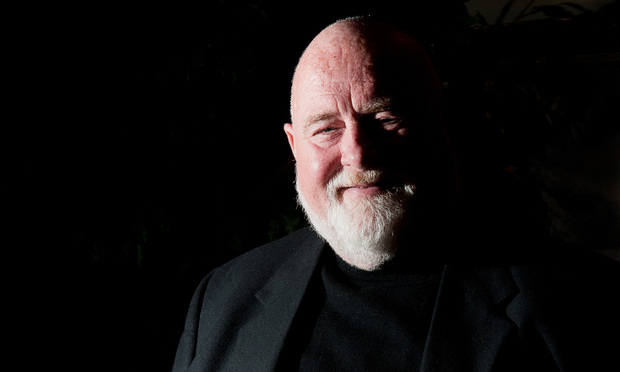Mass. Appeals Court Reinstates $6.6M Judgment in 2009 Radisson Parking Rape
Atlanta attorney Don Keenan and his Massachusetts co-counsel are asking a court to triple the $6.6 million judgment because of alleged bad faith by insurers of the Radisson Hotel in Boston.
November 25, 2019 at 02:58 PM
6 minute read
 Don Charles Keenan, of The Keenan Law Firm, Atlanta. (Photo: Rebecca Breyer/ALM)
Don Charles Keenan, of The Keenan Law Firm, Atlanta. (Photo: Rebecca Breyer/ALM)
More than four years after Atlanta attorney Don Keenan led a team that netted a $6.6 million judgment for a woman savagely raped in a Boston Radisson hotel parking garage in 2009, the Massachusetts Appeals Court threw out a challenge and reinstated the verdict.
The defense asked for a new trial, arguing Keenan's presentation improperly played on jurors' emotions. Keenan is the co-author, with trial consultant David Ball, of "Reptile: The Manual of the Plaintiffs' Revolution," a how-to book for lawyers to get into jurors' "reptile brains" by appealing to their basic fears and instinct for self-preservation.
The trial judge granted the motion, a decision overturned this month on appeal.
With accrued interest the judgment is now worth more than $10 million, but Keenan is aiming higher.
"Massachusetts isn't my favorite venue," said Keenan. "But it has one of the best insurance bad faith laws in the country, so whenever a jury decides a case should have been settled, the award can be doubled or tripled."
Massachusetts' Consumer Protection Act provides that, once a judgment has been entered, if a court or jury finds a willful violation of the act and the Unfair Claims Settlement Act, the penalty "shall be not less than 2 nor more than 3 times the amount of the judgment."
In October, Keenan's Massachusetts co-counsel, David Hoey of North Reading, filed fresh litigation seeking to triple the damages awarded in 2015 for a total of almost $20 million.
The hotel owners' insurers, Zurich International and American Guarantee and Liability, removed the case to federal court. Zurich has filed a motion to dismiss.
Zurich and American Guarantee are represented by Allen David of Peabody & Arnold.
David said he could not comment on the bad faith litigation but offered an opinion on the Appeals Court ruling.
"That decision has to be revisited by the [Massachusetts] Supreme Judicial Court," David said.
The lead attorney for the Radisson owners is Lawrence Kenney Jr. of Sloane & Walsh, who did not respond to requests for comment by deadline.
Until that ruling and another handed down by the Appeals Court last week, David said the standard for granting a new trial was the possibility of prejudice; the new standard is a showing of a miscarriage of justice, he said.
"This new standard takes too much control out of the hands of the trial judge," said David, who was not involved in the underlying litigation.
The rape victim in that case, Kira Wahlstrom, went public years ago and has spoken out as an advocate for rape survivors, said Keenan. He is in the process of teeing up another lawsuit on behalf of her children.
"Kira has two children, and we wanted to wait until the conclusion of of her case before we filed injury claims on their behalf," said Keenan. "They've both been in therapy, and both have behavior problems related to that attack."
Wahlstrom was raped around 2 a.m. after leaving her job as a bartender. Her assailant, Juan Rivera III, was a homeless man who raped another woman in the parking garage 12 days earlier.
Rivera followed Wahlstrom onto an elevator, and when she stepped off he grabbed her by her hair and dragged her to a stairwell, where he raped her and beat her senseless.
Rivera was sentenced to 15 years in prison. In 2010, Wahlstrom sued the hotel owners and parking company LAZ in Suffolk County Superior Court.
After a nearly four-week trial, the jury cleared LAZ of liability but found the Radisson's owners, JPA IV Management Co. and JPA 1 Management, liable for $4 million in damages. With accrued interest, the final judgment was $6.65 million.
JPA appealed, arguing the plaintiffs counsel engaged in multiple instances of improper behavior during trial.
"Reptile" and its tactics were the subject of intense motions during trial and "became central to the defense's appellate motions," Keenan said.
After "painstakingly" examining the trial record, the appeals court said Judge Paul Wilson found "misconduct by plaintiff's counsel before the jury during trial that was not remedied by the judge's curative instructions," and he ordered a new trial.
In his ruling, Wilson said that, although the defense complained that Wahlstrom's counsel "followed the 'Reptile' playbook at trial," he "paid little attention to Mr. Keenan's philosophy, instead focusing on particular actions of plaintiff's counsel without considering whether they were products of that philosophy."
Wahlstrom's team appealed and filed a motion to disqualify Wilson "based on remarks he has made about the trial, the attorneys who appeared before him, and his ruling on the new trial motion," the appellate ruling said.
The appeal was stayed while the motion to disqualify Wilson was pending.
The judge ultimately decided to disqualify himself, and the Appeals Court moved to consider his order for a new trial.
In a Nov. 6 ruling issued by Associate Justices James Lemire, Diana Maldonado and Peter Rubin, the court said that, while there may have been instances of improper comments or rulings, "none of the actions by plaintiff's counsel individually created a miscarriage of justice."
"Moreover, after careful consideration and 'a survey of the whole case' … we conclude that the cumulative effect of the attorneys' misconduct does not meet the 'relatively high' burden necessary to warrant a new trial," the order said. The court reversed the new trial order and lifted the stay.
Keenan said Wahlstrom went through a hellish ordeal that was only made worse by her experience at trial.
"In closing, they were saying, 'Ladies and gentlemen, this case is not about you and the community. It's about a young woman with two children, unmarried, living with a man, who chose to work in a gay nightclub and decided to walk through a parking deck at 3 in the morning,'" Keenan said.
"You can't lose sight of the fact that Kira is a remarkable woman," he said. "Other people would have let it got after all this time; she was living paycheck to paycheck and couldn't afford time off work. But she stood tall all the time, saying she wanted that verdict reinstated."
This content has been archived. It is available through our partners, LexisNexis® and Bloomberg Law.
To view this content, please continue to their sites.
Not a Lexis Subscriber?
Subscribe Now
Not a Bloomberg Law Subscriber?
Subscribe Now
NOT FOR REPRINT
© 2025 ALM Global, LLC, All Rights Reserved. Request academic re-use from www.copyright.com. All other uses, submit a request to [email protected]. For more information visit Asset & Logo Licensing.
You Might Like
View All
DC Lawsuits Seek to Prevent Mass Firings and Public Naming of FBI Agents
3 minute read

Apply Now: Superior Court Judge Sought for Mountain Judicial Circuit Bench
3 minute read
A Plan Is Brewing to Limit Big-Dollar Suits in Georgia—and Lawyers Have Mixed Feelings
10 minute readTrending Stories
- 1Thursday Newspaper
- 2Public Notices/Calendars
- 3Judicial Ethics Opinion 24-117
- 4Rejuvenation of a Sharp Employer Non-Compete Tool: Delaware Supreme Court Reinvigorates the Employee Choice Doctrine
- 5Mastering Litigation in New York’s Commercial Division Part V, Leave It to the Experts: Expert Discovery in the New York Commercial Division
Who Got The Work
J. Brugh Lower of Gibbons has entered an appearance for industrial equipment supplier Devco Corporation in a pending trademark infringement lawsuit. The suit, accusing the defendant of selling knock-off Graco products, was filed Dec. 18 in New Jersey District Court by Rivkin Radler on behalf of Graco Inc. and Graco Minnesota. The case, assigned to U.S. District Judge Zahid N. Quraishi, is 3:24-cv-11294, Graco Inc. et al v. Devco Corporation.
Who Got The Work
Rebecca Maller-Stein and Kent A. Yalowitz of Arnold & Porter Kaye Scholer have entered their appearances for Hanaco Venture Capital and its executives, Lior Prosor and David Frankel, in a pending securities lawsuit. The action, filed on Dec. 24 in New York Southern District Court by Zell, Aron & Co. on behalf of Goldeneye Advisors, accuses the defendants of negligently and fraudulently managing the plaintiff's $1 million investment. The case, assigned to U.S. District Judge Vernon S. Broderick, is 1:24-cv-09918, Goldeneye Advisors, LLC v. Hanaco Venture Capital, Ltd. et al.
Who Got The Work
Attorneys from A&O Shearman has stepped in as defense counsel for Toronto-Dominion Bank and other defendants in a pending securities class action. The suit, filed Dec. 11 in New York Southern District Court by Bleichmar Fonti & Auld, accuses the defendants of concealing the bank's 'pervasive' deficiencies in regards to its compliance with the Bank Secrecy Act and the quality of its anti-money laundering controls. The case, assigned to U.S. District Judge Arun Subramanian, is 1:24-cv-09445, Gonzalez v. The Toronto-Dominion Bank et al.
Who Got The Work
Crown Castle International, a Pennsylvania company providing shared communications infrastructure, has turned to Luke D. Wolf of Gordon Rees Scully Mansukhani to fend off a pending breach-of-contract lawsuit. The court action, filed Nov. 25 in Michigan Eastern District Court by Hooper Hathaway PC on behalf of The Town Residences LLC, accuses Crown Castle of failing to transfer approximately $30,000 in utility payments from T-Mobile in breach of a roof-top lease and assignment agreement. The case, assigned to U.S. District Judge Susan K. Declercq, is 2:24-cv-13131, The Town Residences LLC v. T-Mobile US, Inc. et al.
Who Got The Work
Wilfred P. Coronato and Daniel M. Schwartz of McCarter & English have stepped in as defense counsel to Electrolux Home Products Inc. in a pending product liability lawsuit. The court action, filed Nov. 26 in New York Eastern District Court by Poulos Lopiccolo PC and Nagel Rice LLP on behalf of David Stern, alleges that the defendant's refrigerators’ drawers and shelving repeatedly break and fall apart within months after purchase. The case, assigned to U.S. District Judge Joan M. Azrack, is 2:24-cv-08204, Stern v. Electrolux Home Products, Inc.
Featured Firms
Law Offices of Gary Martin Hays & Associates, P.C.
(470) 294-1674
Law Offices of Mark E. Salomone
(857) 444-6468
Smith & Hassler
(713) 739-1250






